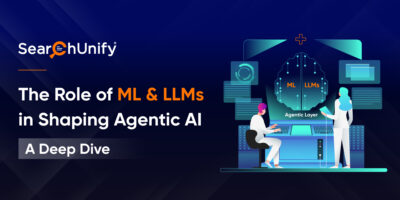
Only 21% of customers trust the established global brands’ ability to safeguard their personal information, highlighting waning confidence in data security among customers.
Generative AI and LLMs in enterprise search are indeed powerful technologies. However, using these technologies can be a double-edged sword. On the one hand, they’re fantastic for improving search capabilities and generating human-like text. On the other, they can be a potential privacy minefield.
The inadvertent disclosure of sensitive information through GenAI-powered enterprise search poses potential financial losses, reputational damage, and legal liability. In an instant, businesses can lose their competitive edge.
Many companies are embracing Generative AI for enterprise search, and it’s a marathon, not a sprint. It requires strategic effort, thoughtful planning, continuous adaptation, and the careful navigation of challenges along the way
Recently, a disconcerting revelation exposed the reality that over 101,000 ChatGPT user accounts were compromised in the past year alone. This data security breach, attributed to information-stealing malware, is a stark reminder of organizations’ data security challenges, particularly in enterprise search
So, what’s the plan? Well, first, we need to detect the problem areas and then solutions. In this blog post, we’ll discuss the data privacy risks enterprises face with LLMs and how we can mitigate those risks.
Let’s get started!
1. Sensitive Data Collection and Access: The Data Expedition
LLMs and generative AI models often require access to enormous amounts of data for training. This data may include sensitive information such as customers’ personal details, proprietary business data, and intellectual property.
Therefore, securing sensitive data is crucial to protect the organization’s reputation and minimize risks from unauthorized access.
In early 2023, Samsung banned ChatGPT use after discovering employees inputting sensitive data, such as source code and internal meeting transcripts, for debugging and summarization purposes.
2. Plugging the Leaks: Data Leakage During Training and Operations
The training process for LLMs and generative AI models can involve vast amounts of sensitive data. If the training data is not secured properly, it could be leaked, potentially exposing sensitive information to the public.
Additionally, during operation, these models may inadvertently reveal sensitive data in the search results or through the generation of text, code, or other creative outputs.
3. Escape the Data Dilemma: Bias and Discrimination in Gen AI
Gen AI and LLMs models learn from the massive datasets which may reflect biases or prejudices inherent in the data. However, it is crucial to address these biases. Otherwise, they can be amplified in the models’ outputs, leading to discriminatory search results or content generation.
4. Third-Party Perils: Privacy Concerns with External LLMs
He further expressed apprehension when enterprises utilize third-party LLMs or GenAI services. They can raise grave privacy concerns as the models are trained and operated on data outside the organization’s control.
5. Across the Data Divide: LLMs’ Quest for Data Across Realms
The burgeoning adoption of LLMs in enterprise search has increased cross-border data transfers, posing complex challenges. These complexities often manifest in compliance dilemmas, data security concerns, and reputational risks.
European data protection authorities have fined companies EUR 1.64 billion since January 28, 2022, marking a 50% YoY increase in GDPR fines. This highlights the significance of data protection regulation compliance.
Navigate the balance between AI innovation and data privacy with us!
Talk to our expertsMitigating Data Privacy Risks with Federated Retrieval Augmented Generation (FRAG™)

To address the limitations of LLMs, cutting-edge frameworks like FRAG™ have come into play.
Federation Layer
The Federation layer offers a comprehensive 360-degree view of the user journey, understanding the context of user input and generating precise, relevant, and accurate factual results.
Furthermore, at this stage, an additional layer of security is implemented, incorporating robust data security measures in the form of encryption protocols to protect data during transit and while at rest.
Retrieval Layer
Getting accurate results is crucial for a good customer experience; this is where the retrieval layer comes into play. This layer bridges user input and the relevant information available in a predefined knowledge set. Through keyword matching, semantic similarity, and advanced retrieval algorithms, it analyzes the user’s intent and generates the most appropriate responses.
Augmented Generation Layer
This layer focuses on generating more natural, human-like content based on the intent and retrieved information, leveraging language modeling and neural network frameworks. It ensures the generated response is relevant and addresses the specific needs of the user.
Harnessing LLM and Gen AI-powered site search is like driving a hypercar – the exhilarating speed with hidden hazards. A single privacy slip-up can risk your organization’s reputation and trigger a General Data Protection Regulation pit stop. So be cautious and choose effective solutions to avoid such risks.
If you are keen to see SearchUnifyFRAG™ in action, request a live demo now.










